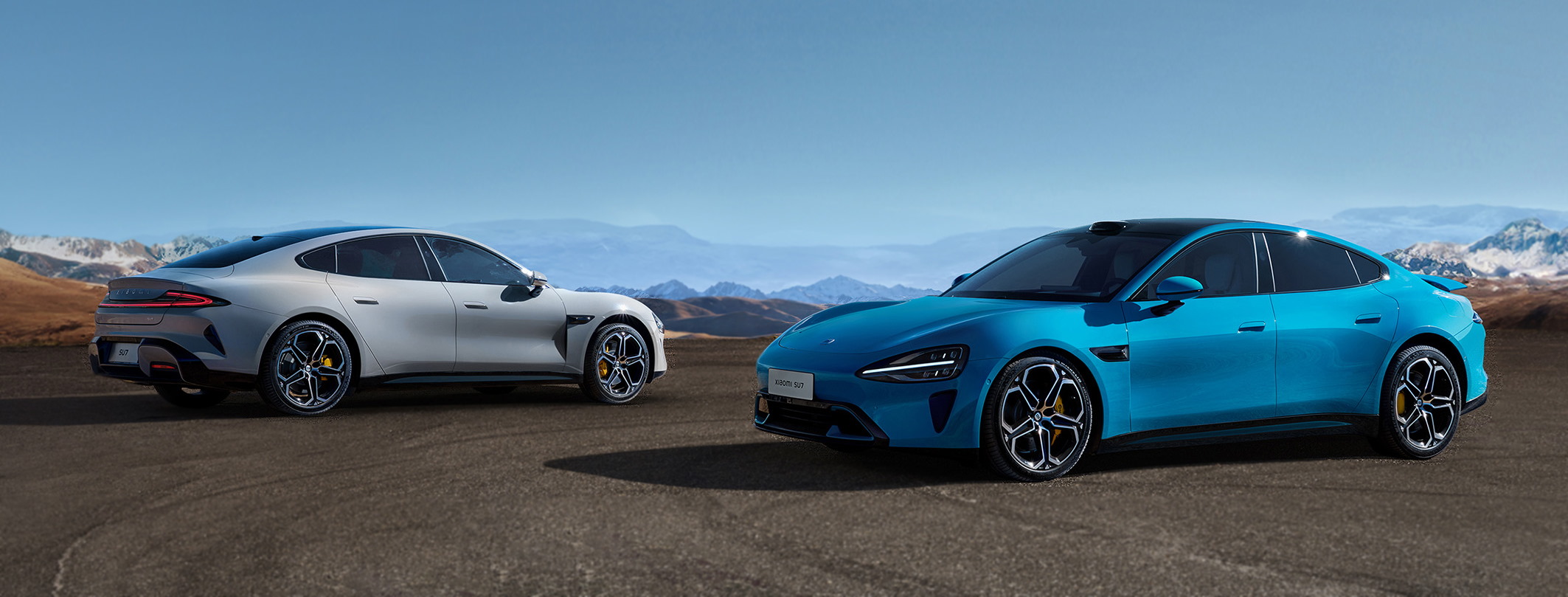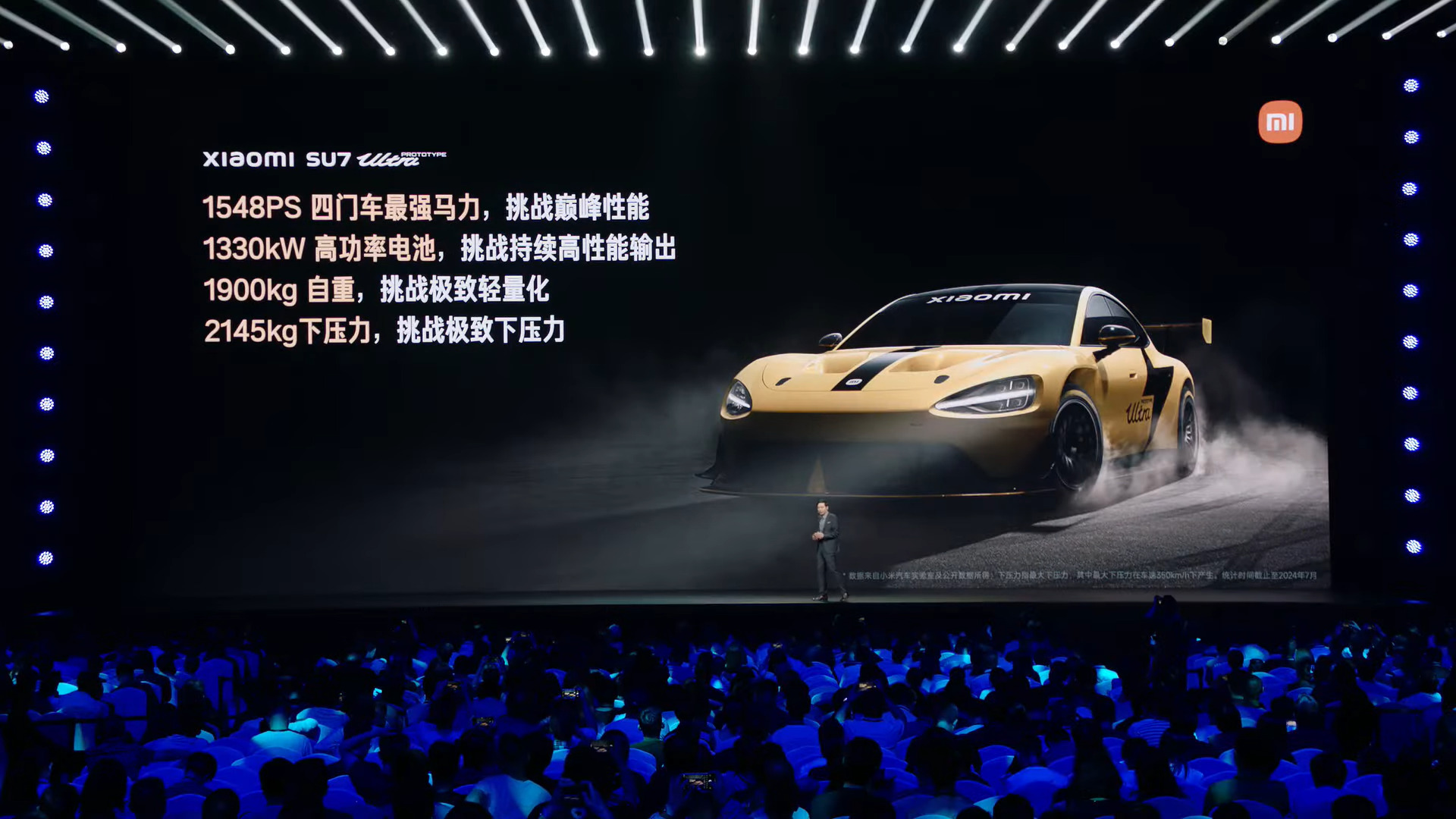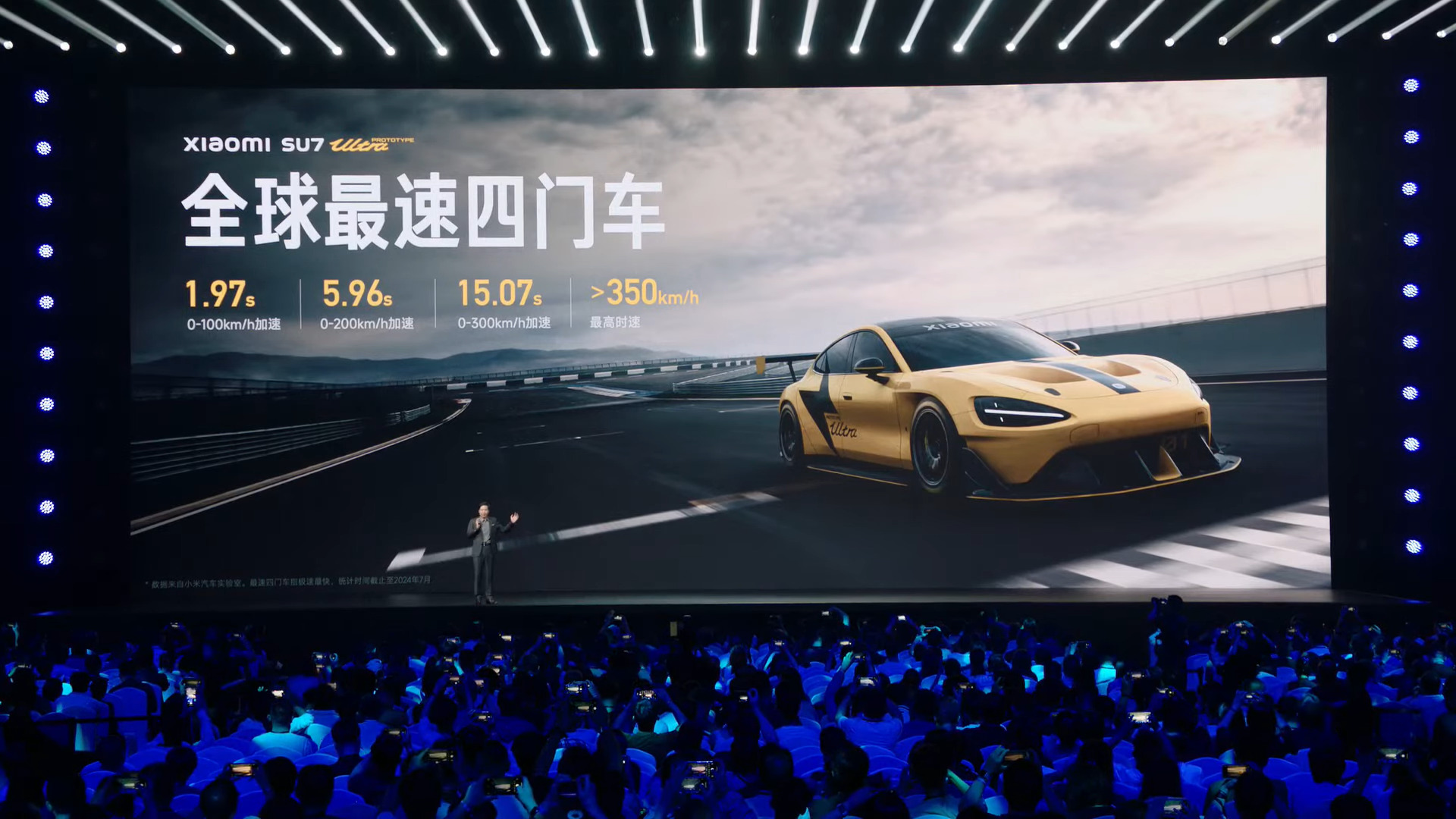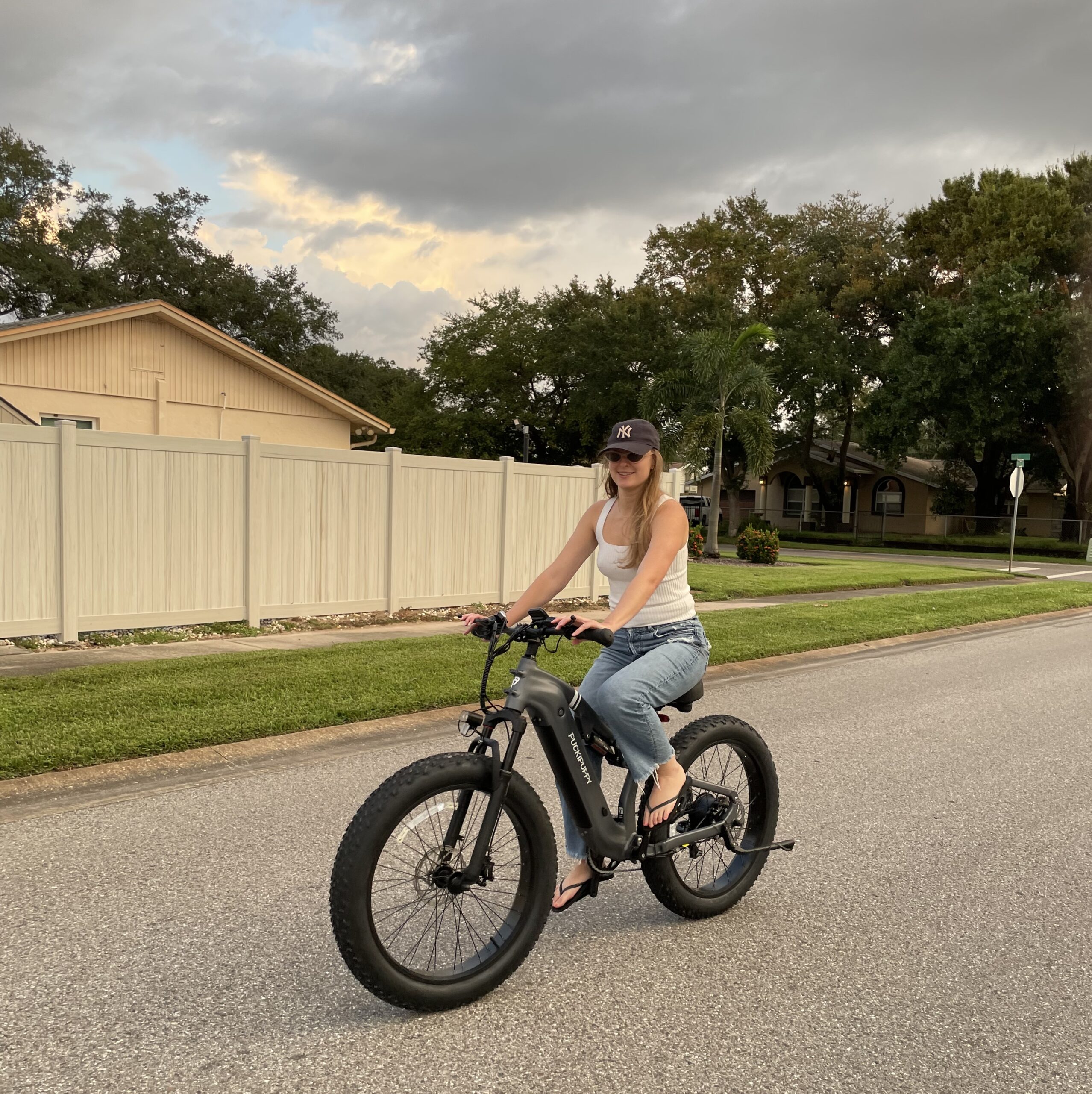Sign up for daily news updates from CleanTechnica on email. Or follow us on Google News!
Xiaomi, the world’s second largest smartphone maker, recently launched its electric sportscar, the Xiaomi SU7 sedan. Now, the company has just announced it will soon attempt a fast lap at the Nürburgring Nordschleife using a dedicated SU7 track-ready prototype.
Xiaomi’s founder and CEO, Lei Jun 雷军, today (July 19th) held the company’s annual presentation to show off new products. During the first ~70 minutes, Lei Jun told the story of the inception and development of Xiaomi’s first auto, the SU7 EV, which was launched in late March 2024.
The story included Lei Jun’s process of personally driving over 180 other auto models during the development process of the SU7. He also got a racing licence and spent a lot of time on racetracks, as did around 100 other members of Xiaomi’s vehicle engineering team. This enabled them to quickly grow their expertise in vehicle handling and performance, and iteratively apply improvements to the SU7 during its development.
The 4-door sports sedan, which starts from RMB 215,900 (€27,270 or $29,700) is already an overnight success, selling at a rate of over 11,400 units per month.

After also spending time presenting Xiaomi’s new smartphones and other consumer products, towards the end of the show, Lei Jun announced “one more thing.”
He revealed that the company has been working on a prototype track-focused variant of the SU7, called the “Ultra.”
The Ultra has already been largely designed, built, and undergone track testing, but its parameters and dynamics are being further developed and improved.
Once the SU7 Ultra track prototype has set a benchmark Nürburgring Nordschleife lap time, planned for sometime in October 2024, Xiaomi will finalise the design and specifications of a road-legal retail version of the Ultra. This will go on sale sometime in 2025.
What are some of the performance specs of the track prototype Xiaomi SU7 Ultra?
It has a total of 1,548 horsepower, from 3 electric motors. Extensive use of carbon fibre has allowed Xiaomi to keep the vehicle weight down to 1,900 kg — impressive for a powerful 4-door BEV. For context, the Tesla Model S Plaid weighs 2,162 kg, and the latest Porsche Taycan Turbo GT weighs 2,234 kg. Both have significantly less power than the SU7.

At the same time, the SU7 Ultra prototype’s racecar aerodynamics give it a massive downforce of 2,145 kg at high speed, which should make for some impressive grip through high-speed corners.
The power-to-weight ratio gives the vehicle impressive acceleration, with 0 to 100 km/h taking just 1.97 seconds (faster than the Tesla or the Porsche). Equally impressive, 200 km/h comes up in just 5.96 seconds! Top speed is over 350 km/h (>218 mph).
We have discussed Porsche’s EV lap times, and Tesla’s lap times, at the ‘ring previously, so if you are not familiar with this iconic race track (and why it is widely used for vehicle development), have a look at those articles. What lap time will the Xiaomi SU7 Ultra prototype do on the Nürburgring Nordschleife?
Much will depend on how powerful the SU7 Ultra’s cooling systems are, and thus how much of the lap distance those incredible headline 1,436 horsepower are available for. Both the Tesla, and even the latest Porsche, are thermally limited on a single lap of the ring, when pushed to their maximum power. This means that, when called upon for ~7 minutes (and ~20 km) of this demanding track, the powertrain cooling (for some combination of motors, inverters, and battery pack) can get overwhelmed and the vehicle compensates by reducing the system power output.
If you watch the Porsche Taycan Turbo GT lap, for example, you can see several places (notably at Kesselchen and Dottinger Hohe) where the vehicle’s 10 second “boost mode” is requested but unavailable due to the vehicle already being at its thermal limits. This is normal stuff — there’s always a balance in mechanical systems between power output and thermal limits (as well as interacting with other factors like efficiency and reliability).
At the end of the day, the Taycan and the Model S Plaid are designed primarily as road cars, and only a very small fraction of owners will ever push them to levels that bump up against the cooling capability that the engineers finally settled on.
Lap times also depend a lot on the choice of tires. Manufacturers of road cars, like Porsche, usually take the honest and transparent decision of announcing official ‘ring lap times which are run on the same tires which are offered for sale to normal customers of the showroom vehicle. Musk made the rookie mistake of hinting about lap times which were ultimately only achievable on race compound tires, which were thus never achieved during the officially sanctioned lap time on street tires.
Xiaomi is probably not intending to sell this exact track-special prototype version to regular customers as a road-going car. It therefore could in theory run with race-biased rubber (like Trofeo R or Pilot Sport Cup 2 R) and claim that is legitimate because this is a race car. If so, a time of under 7 minutes should be well within reach. This is as much thanks to the light-weighting and downforce as anything else.
With a road-biased sport tire (like P-Zero, or Pilot Sport Cup 2), which is less sticky and more long lasting, around or just over 7 minutes would already be impressive.
As mentioned above, once the team has found a good setup with the prototype for the October lap time efforts, Xiaomi will move on to designing, manufacturing, and selling a road-legal version (which will likely have to have slightly less aggressive aero) to meet road safety (especially pedestrian safety) regulations. They will also likely run this on street-biased rubber.
If the final road-going version of the SU7 Ultra can get anywhere close to the lap time of the Porsche Taycan GT, that will be a remarkable achievement for the first car Xiaomi has ever made. You can also bet that the company will price it to undercut the Taycan!
We will have to wait and see.
Twist of Fate
Lei Jun recounted that the company’s journey to launching its first vehicle started on January 15, 2021. Why this date?
In 2014, Lei was named businessman of the year by Forbes, and in 2019 received a national award for “Outstanding Builder of Socialism with Chinese Characteristics.” (This is not uncommon — for example, BYD’s chairman Wang Chuanfu has also received this national recognition.)
The US government — which has been famously hostile to Socialism and labour movements since the late 19th century, and particularly hostile to China — decided to respond to that award by banning Xiaomi from getting investment from within the US, and ultimately, from doing business in the US, as reported by the Wall Street Journal at that time.
This restriction was put in place on January 14, 2021, right at the end of the Trump administration, and thereafter kept in place by the Biden administration. It was this hostile move by the US government which caused Xiaomi to explore new areas of business — by aiming to make an automobile — and to keep its workers employed.
This, and other interesting details, are recounted in today’s presentation, which you can watch on Xiaomi’s website. The lengths the company went to in order to learn during the development process are noteworthy, and go a long way to explaining how a consumer electronics company was able to make its first ever auto such an immediate success story.
Article images courtesy of Xiaomi
Have a tip for CleanTechnica? Want to advertise? Want to suggest a guest for our CleanTech Talk podcast? Contact us here.
Latest CleanTechnica.TV Videos
CleanTechnica uses affiliate links. See our policy here.
CleanTechnica’s Comment Policy








